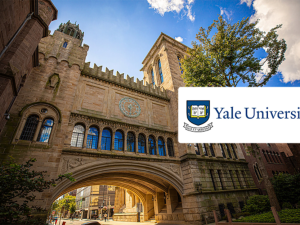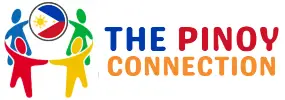 In a groundbreaking development for both students and educators, Yale University has announced the introduction of its first Filipino language courses. This significant milestone not only reflects the university’s commitment to diversity and inclusivity but also recognizes the growing importance of Filipino culture and language in an increasingly globalized world.
In a groundbreaking development for both students and educators, Yale University has announced the introduction of its first Filipino language courses. This significant milestone not only reflects the university’s commitment to diversity and inclusivity but also recognizes the growing importance of Filipino culture and language in an increasingly globalized world.
The Importance of Filipino Language Education
Filipino, the national language of the Philippines, plays a crucial role in the cultural identity of over 108 million people. As the country continues to forge its path on the global stage, the demand for language courses that facilitate better understanding and appreciation of Filipino culture is rising. Here are a few reasons why learning Filipino is both beneficial and enriching:
- Cultural Connection: Understanding a language often leads to a deeper appreciation for its associated culture, history, and traditions.
- Community Engagement: With a significant Filipino diaspora around the world, speaking the language can foster stronger community ties.
- Career Opportunities: Proficiency in Filipino can enhance career prospects in fields such as international relations, healthcare, translation, and more.
- Enhanced Cognitive Skills: Learning a new language improves cognitive abilities, sharpens problem-solving skills, and boosts memory.
A Step Towards Inclusivity
Yale’s decision to include Filipino in its language course offerings represents a broader acknowledgment of the diverse backgrounds of its student body. Around the world, universities are beginning to recognize the value of teaching underrepresented languages.
The introduction of Filipino courses has been met with enthusiasm from both students and faculty. Dr. Maria Santos, an expert in Southeast Asian languages and new instructor for the Filipino courses, expressed her excitement: “This is an incredible opportunity not just for our students but for the broader community to engage with Filipino culture in meaningful ways.”
Course Structure and Content
The Filipino language courses at Yale will cater to students of all levels—whether you are an absolute beginner or have some prior knowledge of the language. The courses promise a blend of grammar, vocabulary, culture, and conversation to create a comprehensive learning experience.
- Beginners Level: Focus on basic vocabulary, simple sentences, and cultural context to provide a foundation.
- Intermediate Level: Greater emphasis on conversational skills and reading comprehension, alongside cultural nuances.
- Advanced Level: Detailed exploration of literature, idiomatic expressions, and contemporary issues in the Philippines.
Each level will incorporate various multimedia resources, including films, music, and literature, ensuring that students engage with the language actively and creatively.
Building a Community Through Language
Yale’s language program aims to foster a community of learners who not only study the language but also engage with one another culturally. The introduction of language tables, cultural events, and exchange programs are all part of the initiative. These programs will no doubt enrich the student learning experience by immersing them in real-world applications of their language skills.
The initiative mirrors similar programs at other prestigious universities, where students share food, music, and traditions from their respective cultures through language learning.
Feedback from Students and Alumni
The prospect of learning Filipino at Yale has already garnered excitement from students and alumni alike. Andres Dela Cruz, a current Yale student of Filipino descent, expressed his enthusiasm, stating, “I’ve always wanted to connect with my roots more deeply, and having a Filipino course will certainly help. I can’t wait to enroll!”
These sentiments were echoed by alumni who commend Yale for taking this significant step toward inclusivity and cultural exploration.
Why Now? The Timing is Right
The Philippines has emerged not just as an active player in the global economy but also as a vibrant culture that celebrates rich traditions while adapting to modernity. Various sectors, from technology to tourism, have showcased the Philippines as a desirable destination. The demand for Filipino speakers is growing in businesses aiming for a global footprint.
Furthermore, the last few years have seen a resurgence of interest in multicultural education, making this an opportune moment for universities to expand their language offerings. As the world grows closer, fostering linguistic diversity becomes essential for cultural exchange and mutual understanding.
Preparing for Enrollment
For prospective students interested in the Filipino language courses, Yale’s registration process will begin in the upcoming semester. Interested individuals are encouraged to check the official Yale University website for details regarding course availability, schedules, and enrollment procedures.
The administration has also indicated that scholarships and funding may be available for students passionate about pursuing this new field of study, ensuring that financial barriers do not hinder interested learners.
Impact on Future Generations
Yale’s launch of the Filipino language courses is more than just an academic offering; it represents a commitment to future generations. By equipping students with linguistic and cultural tools, Yale empowers them to engage thoughtfully and empathetically with the world around them.
Language is a powerful means of connection. By learning Filipino, students will not only gain language proficiency but also forge relationships that span continents. This initiative has the potential to shape the next generation of cultural ambassadors, fostering understanding and collaboration between diverse communities.
Conclusion
Yale University’s inaugural Filipino language courses mark a significant milestone in the landscape of language education. As the university opens its doors to the Filipino language, it paves the way for greater cultural exchange and understanding.
With growing interest in Filipino culture and language worldwide, this new academic offering is timely and significant. By investing in language learning, Yale is positioning its students to succeed in a diverse and interconnected global society.
The future is bright, and the road ahead is filled with opportunities for bilingual communication and cultural exchange. As students begin their journey into the Filipino language, they dive not only into words but also into the heart of a vibrant culture that has much to contribute to the world.
